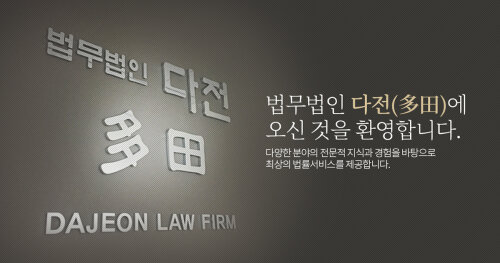Best Debt & Collection Lawyers in Seoul
Share your needs with us, get contacted by law firms.
Free. Takes 2 min.
List of the best lawyers in Seoul, South Korea
About Debt & Collection Law in Seoul, South Korea:
Debt and collection laws in Seoul, South Korea govern the process of pursuing unpaid debts through legal channels. These laws establish the rights and responsibilities of creditors and debtors, outlining procedures for debt collection, enforcement, and resolution of disputes.
Why You May Need a Lawyer:
If you are facing challenges in collecting debts owed to you or are being pursued for unpaid debts, seeking legal assistance is crucial. A lawyer specializing in debt and collection law can provide valuable advice and representation to protect your rights and interests.
Local Laws Overview:
Key aspects of debt and collection laws in Seoul, South Korea include the statute of limitations for debt collection, restrictions on debt collection practices, and procedures for enforcing debt repayment through legal means. Understanding these laws is essential for navigating debt-related issues effectively.
Frequently Asked Questions:
Q: What is the statute of limitations for debt collection in Seoul, South Korea?
A: In Seoul, South Korea, the statute of limitations for most debts is 10 years. After this period, creditors may no longer pursue legal action to collect the debt.
Q: Can a creditor garnish wages to collect a debt in Seoul, South Korea?
A: Yes, creditors can seek a court order to garnish a debtor's wages for debt repayment in Seoul, South Korea, subject to certain limitations and procedures.
Q: Are there restrictions on debt collection practices in Seoul, South Korea?
A: Yes, debt collectors in Seoul, South Korea are prohibited from engaging in abusive, deceptive, or unfair practices when pursuing debt repayment. Violations of these restrictions can result in legal consequences.
Q: Can I dispute a debt collection claim in Seoul, South Korea?
A: Yes, debtors have the right to dispute a debt collection claim in Seoul, South Korea by challenging the validity of the debt or presenting evidence of payment.
Q: How can a lawyer help me with debt and collection issues in Seoul, South Korea?
A: A lawyer specializing in debt and collection law can provide legal advice, negotiate settlements, represent you in court proceedings, and ensure your rights are protected throughout the debt collection process.
Q: What are the consequences of ignoring debt collection attempts in Seoul, South Korea?
A: Ignoring debt collection attempts in Seoul, South Korea can lead to legal action, damage to your credit score, and potential seizure of assets to satisfy the debt.
Q: How can I find a reputable debt and collection lawyer in Seoul, South Korea?
A: You can search for reputable debt and collection lawyers in Seoul, South Korea through legal directories, bar associations, or recommendations from trusted sources.
Q: Can I negotiate a debt settlement with creditors in Seoul, South Korea?
A: Yes, debtors can negotiate a debt settlement with creditors in Seoul, South Korea to reach a mutually agreeable repayment arrangement and avoid legal proceedings.
Q: Are there alternative options to resolve debt issues in Seoul, South Korea?
A: Yes, alternative options to resolve debt issues in Seoul, South Korea include debt consolidation, credit counseling, and debt management plans offered by financial institutions or nonprofit organizations.
Q: What are my rights as a debtor in Seoul, South Korea?
A: Debtors in Seoul, South Korea have rights under the law, including protection against harassment from debt collectors, the right to dispute debt claims, and the right to seek legal advice and representation.
Additional Resources:
For more information on debt and collection laws in Seoul, South Korea, you can refer to the Seoul Bar Association or the Financial Supervisory Service for guidance and resources.
Next Steps:
If you require legal assistance for debt and collection issues in Seoul, South Korea, it is advisable to consult with a reputable debt and collection lawyer who can assess your situation, provide personalized advice, and represent your interests effectively. Take proactive steps to address debt-related challenges and protect your financial well-being.
Lawzana helps you find the best lawyers and law firms in Seoul through a curated and pre-screened list of qualified legal professionals. Our platform offers rankings and detailed profiles of attorneys and law firms, allowing you to compare based on practice areas, including Debt & Collection, experience, and client feedback.
Each profile includes a description of the firm's areas of practice, client reviews, team members and partners, year of establishment, spoken languages, office locations, contact information, social media presence, and any published articles or resources. Most firms on our platform speak English and are experienced in both local and international legal matters.
Get a quote from top-rated law firms in Seoul, South Korea — quickly, securely, and without unnecessary hassle.
Disclaimer:
The information provided on this page is for general informational purposes only and does not constitute legal advice. While we strive to ensure the accuracy and relevance of the content, legal information may change over time, and interpretations of the law can vary. You should always consult with a qualified legal professional for advice specific to your situation.
We disclaim all liability for actions taken or not taken based on the content of this page. If you believe any information is incorrect or outdated, please contact us, and we will review and update it where appropriate.















